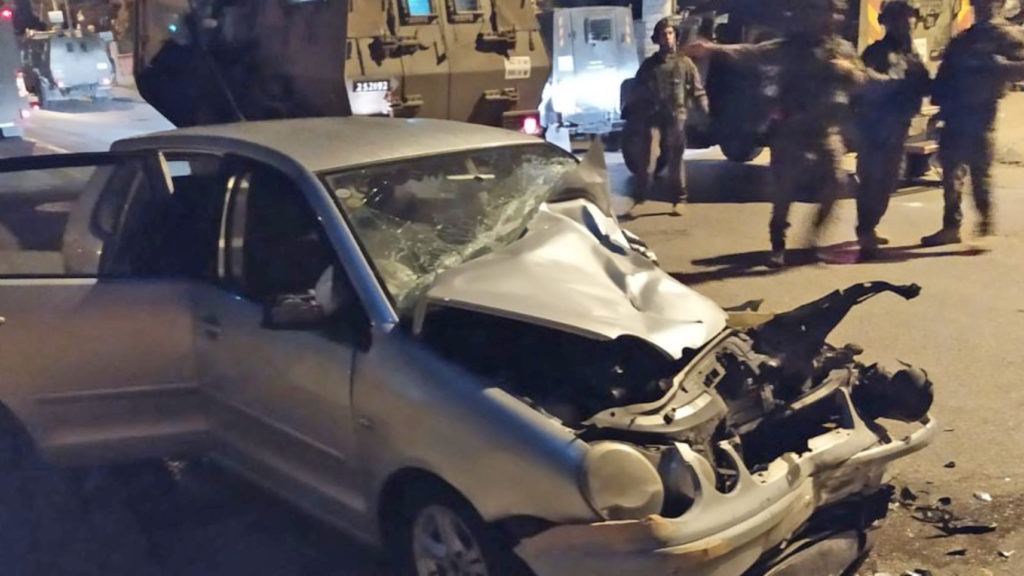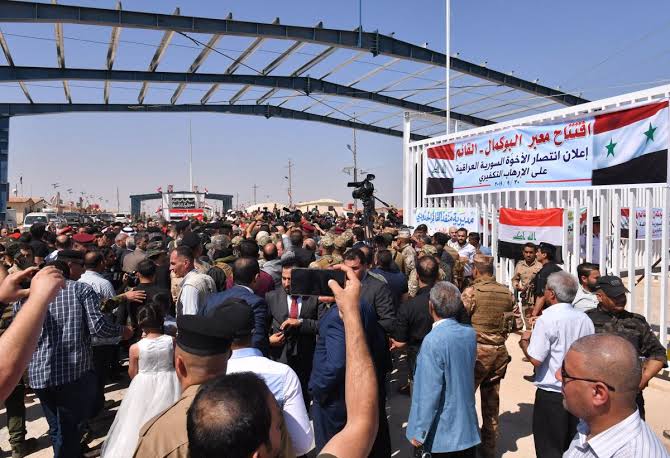Australia/Israel Review
Behind the News – November 2019
Nov 8, 2019 | AIJAC staff

Rocket and Terror report
On Sept 25, a 13-year-old Palestinian stabbed and seriously injured an Israeli woman at a bus stop in Modi’in. The following day, another Palestinian child around the same age attempted to stab police officers in Jerusalem’s Old City.
On Sept. 28, a mortar shell fired from the Sinai Peninsula amid fighting between Egyptian security forces and jihadists landed in the Israeli village of Bnei Netzarim, resulting in minor property damage.
Weekly “March of Return” riots continue along the Gaza border fence, involving improvised explosive devices, burning tyres, and other attempts to damage the border fence and cross into Israel. On Oct. 2, three Palestinians reportedly breached the security fence and were detained by Israeli forces.
On Oct. 18, a Palestinian man was shot dead after reportedly running with a knife at security forces at a West Bank checkpoint. The previous day, a Palestinian was shot by undercover security forces after reportedly ramming his car into their unmarked vehicle near Ramallah.
Tax back on track
The Palestinian Authority (PA) agreed to resume accepting tax revenue collected by Israel, but made its acceptance conditional on Israel renegotiating the 1994 Israeli-PA Protocol on Economic Relations, also known as the Paris Agreements.
Earlier this year, the PA had begun refusing all tax revenue transfers by Israel after Israel enacted a law to deduct from the tax transfers the amount that the PA gives to Palestinians who have carried out terror attacks or their families.
However, a Palestinian budget crisis has forced the creation of a new arrangement where the PA and Israel agree to disagree on the “pay for slay” deductions while making changes to import and export restrictions in the Paris Agreements that would benefit the PA.
In related news, Israel has reportedly quietly increased the number of entry permits it issues to Gazan workers. According to reports, the growing number of permits are ostensibly issued to allow Gaza businessmen to arrange transactions in Israel, but are in fact increasingly being used by Gazans to work in Israel, especially in the construction and agricultural sectors.
Mystery surrounds Iranian tanker attack
Amid tensions in the Persian Gulf, the reasons and perpetrators behind an alleged attack on an Iranian oil tanker on Oct. 11 remain unclear. The National Iranian Oil Company claimed the ship, which was carrying one million barrels of oil, was hit twice while travelling through the Red Sea, off the coast of Saudi Arabia. The ship sailed back to Iran following the attack. US sanctions forbid Iran to export oil.
Studying images taken of the ship, some analysts disputed the Iranian claim that it was hit by missiles and suggested the damage looked more consistent with limpet mines placed on the hull.
Iran moves in, as US moves out

Reopened: The Deir al-Zour crossing
Just prior to US President Donald Trump announcing the withdrawal of his country’s troops from Syria, the northeastern border crossing between Syria and Iraq was reopened after five years.
The opening of the crossing at Deir al-Zour is seen as primarily benefitting Iran, which has a strong presence in the area. Iranian officials were reported to have described the crossing as of “high strategic importance” and Islamic Revolutionary Guards Corps Qods Force commander Qasem Soleimani visited the crossing site in July.
The Iranian regime reportedly has two new military bases in the Deir al-Zour region, supports a number of Shi’ite militias operating there and the area is a key strategic route into Lebanon, part of the so-called “land bridge” that Iran is attempting to build from its own borders to the Mediterranean.
Nuclear inspectors not welcome in Iran
Iran continues to expand its breaches of the 2015 nuclear deal, known as the JCPOA.
A spokesperson for the Iranian Parliament’s National Security Committee announced on Oct. 16 that Iran intends to restrict inspections undertaken by the International Atomic Energy Agency (IAEA), which is supposed to monitor the nuclear activities in the country.
Earlier, Iranian President Hassan Rouhani declared that advanced nuclear enrichment centrifuges types IR-2, IR-4 and IR-6 “are operating well”, while IR-7 and IR-9 centrifuges “will start working soon.” The JCPOA allows Iran to only enrich uranium using the much less efficient IR-1 centrifuges, with advanced models limited to research use only. An Iranian official claimed that the capacity of IR-9 centrifuges is “50 times” that of IR-1 centrifuges.
Talking Turkey in Jerusalem
Israel’s Foreign Ministry has reportedly been charged with creating plans to curb Turkish efforts to gain influence in Jerusalem.
The plans would reportedly include actions to limit the activities of the Turkish Cooperation and Coordination Agency, which has reportedly been spending millions of dollars on community service projects in Jerusalem, including the restoration of cemeteries and mosques. These activities are believed to be designed to help Turkey entrench its influence and power among Palestinian Muslims in Jerusalem, at the expense of Jordanian influence.
Israel-Gulf state “non-aggression pacts”?
Another step has been taken towards a future peace between Israel and several Gulf states.
Israeli Foreign Minister Israel Katz announced that he was working on non-aggression treaties with several, unnamed Arab countries. There is continued reluctance by Arab states to establish full diplomatic relations while the Israeli-Palestinian situation remains unresolved, but Katz’s announcement was welcomed as a sign of possible progress.
In another sign of warming Israel-Gulf relations, an Israeli diplomat attended a maritime security conference in Bahrain on Oct. 21.
Earlier in October, Israeli officials also joined their Arab counterparts at a meeting in Seoul on cybersecurity.
“UNRWA must be reformed” – former legal counsel
Donors must help reform the United Nations Relief and Works Agency for Palestine Refugees (UNRWA), or the organisation should be dissolved, according to former UNRWA legal counsel James Lindsay.
Speaking on the sidelines of a recent UN Human Rights Council meeting, Lindsay called for donors, of which Australia is a major one, to apply “direct pressure” to force reforms that address UNRWA’s structural problems.
Lindsay said UNRWA’s flawed definition of refugees, where Palestinians with citizenship of Jordan, Lebanon and Syria are still defined as refugees and therefore continue to receive UN support, is “wholly inappropriate”. He also said UNRWA’s perpetuation of the Palestinian “right of return” to Israel for those displaced in 1948 and their descendants was detrimental to the peace process.
The comments come as official investigations continue into the UNRWA leadership over allegations of ethical misconduct and corruption.
Abusers on the Human Rights Council
Despite currently being investigated by the UN Human Rights Council (UNHRC) over many alleged human rights abuses, including the use of death squads, Venezuela was elected in mid-October to take a seat on that same council.
A global campaign to keep Venezuela from taking a two-year revolving position on the UNHRC was unsuccessful.
Libya, a country condemned by the UN Human Rights Commissioner for failing to prevent its own military, as well as local terrorists, from carrying out indiscriminate attacks on civilians, was also voted onto the UNHRC.
Tags: Iran, Israel, Palestinians, Turkey, United Nations






